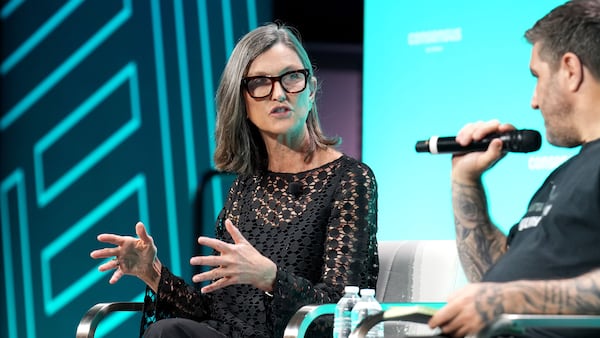- Robinhood is launching a proprietary prediction market.
- The move puts new pressure on its partner Kalshi.
- Legal disputes and sports book incumbents reveal a highly competitive market.
With its joint acquisition of LedgerX on Wednesday, Robinhood is doubling down on its prediction market business — and raising fresh questions for Kalshi.
As LedgerX is licensed by the Commodities and Futures Trading Commission, Robinhood and its acquisition partner, quant trading firm Susquenha, can begin offering a proprietary service under one roof as early as next year.
The move raises serious questions for the company’s early partnership with Kalshi.
For now, the prediction market upstart is unfazed.
“When you build something as successful as Kalshi has, it’s no surprise that everyone and their mum wants a piece of it,” Jack Such, a growth executive at Kalshi, told DL News.
“It’s the ultimate compliment that companies like CME and Robinhood are validating the industry we created.”
$300 million
Robinhood first rolled out prediction markets in February, tying up with Kalshi to offer bets on NFL and college football games. Since then, the business has been one of Robinhood’s fastest-growing.
Since its launch, Robinhood has earned roughly $300 million in annual recurring revenue across nine billion contracts and over one million traders, according to a Tuesday note from Bernstein.
What’s more, that revenue is ginned up from just 30% to 50% of the total fee pool split with Kalshi.
By launching its own prediction market and taking control over fees, Robinhood could essentially double those revenues — and potentially halve Kalshi’s.
Though Robinhood will continue to host Kalshi contracts, the company’s move to launch its own platform is just another blow to the prediction market upstart.
Red-hot prediction markets
Prediction markets have emerged as one of the hottest — and most controversial — businesses in 2025.
These platforms let users bet on the outcomes of any number of events, including how far Russian troops will advance in Ukraine, who will win the Super Bowl, and the words a crypto executive will say on an earnings call.
The primary players have been Kalshi and its staunch competitor, Polymarket.
‘We’re confident in our ability to continue to define the category we built.’
— Jack Such, a growth executive at Kalshi.
The two platforms facilitated hundreds of millions of dollars in trades in the run-up to the 2024 US Presidential election.
Volumes subsided after the election, but have since come roaring back as the sports season kicks off in the US.
Now, Kalshi’s notional volume over the last 30 days exceeds $4.7 billion, according to data collated by user datadashboards on Dune Analytics. So far this month, Polymarket has posted $3.7 billion in notional volume.
That action is turning heads among traditional sportsbooks. Sports betting behemoth FanDuel announced a new prediction market in partnership with CME Group on November 13, called FanDuel Predicts.
The CEO of Flutter, an Irish-American sports betting company that owns FanDuel, said the move “unlocks an immediate growth opportunity.”
As for Kalshi, it’s the same as always.
“We’re confident in our ability to continue to define the category we built,” Such told DL News.
Liam Kelly is DL News’ Berlin-based DeFi correspondent. Have a tip? Get in touch at liam@dlnews.com.









